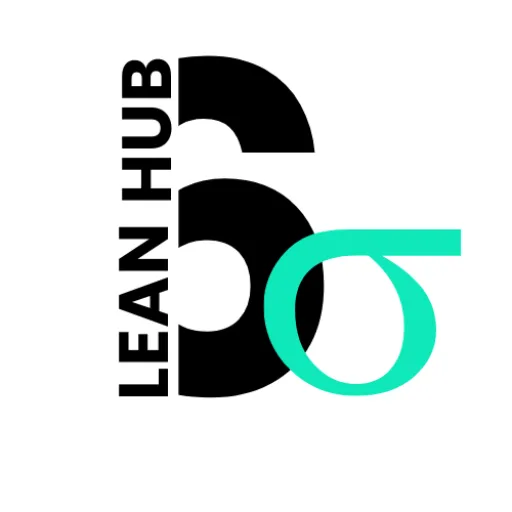Maximizing Business Benefits with MBB Certification
In the ever-evolving landscape of business, the pursuit of excellence and efficiency has become paramount. One of the most recognized pathways to achieving these goals is through MBB certification, which stands for Master Black Belt certification. This credential is not merely a title; it represents a deep understanding of advanced quality management principles, particularly those rooted in Six Sigma methodologies.
As we delve into the intricacies of MBB certification, we will explore its significance, the role it plays in organizations, and how it can be a catalyst for transformative change. MBB certification is designed for individuals who aspire to lead quality improvement initiatives within their organizations. It equips us with the tools and techniques necessary to analyze complex problems, implement effective solutions, and drive sustainable results.
The journey to becoming an MBB is rigorous, requiring a blend of theoretical knowledge and practical application. As we embark on this exploration, we will uncover how MBB certification not only enhances our professional capabilities but also contributes to the overall success of our organizations.
Key Takeaways
- MBB certification is a prestigious qualification that signifies expertise in Six Sigma methodologies and tools.
- MBBs play a crucial role in driving business improvement and leading organizational change by identifying opportunities for improvement and implementing solutions.
- Implementing MBB methodologies in business processes can lead to significant improvements in quality, efficiency, and cost reduction.
- MBB certification can be leveraged to drive organizational growth by improving processes, reducing defects, and enhancing customer satisfaction.
- MBB certification helps in building a culture of continuous improvement by empowering employees with the skills and tools to drive change and innovation.
Understanding the Role of MBB in Business
The role of a Master Black Belt in business is multifaceted and critical to the success of quality improvement initiatives. As MBBs, we serve as mentors and leaders, guiding teams through the complexities of process improvement projects. Our expertise allows us to bridge the gap between strategic objectives and operational execution, ensuring that quality initiatives align with the broader goals of the organization.
This alignment is essential for fostering a culture of excellence and accountability. Moreover, MBBs are responsible for training and developing other professionals within the organization. We take on the role of educators, imparting knowledge about Six Sigma methodologies and tools to Green Belts and Black Belts.
This mentorship not only enhances the skill set of our colleagues but also creates a ripple effect that amplifies the impact of quality improvement efforts across the organization. By cultivating a strong foundation of knowledge and skills, we empower teams to tackle challenges with confidence and creativity.
Implementing MBB Methodologies in Business Processes
Implementing MBB methodologies in business processes requires a strategic approach that encompasses both planning and execution. As we embark on this journey, we must first assess the current state of our processes to identify areas ripe for improvement.
This assessment often involves data collection and analysis, allowing us to pinpoint inefficiencies and bottlenecks that hinder performance.
By leveraging tools such as process mapping and root cause analysis, we can gain valuable insights into the underlying issues affecting our operations. Once we have identified areas for improvement, we can begin to implement MBB methodologies systematically. This often involves deploying Six Sigma tools such as DMAIC (Define, Measure, Analyze, Improve, Control) to guide our projects.
Each phase of this framework provides a structured approach to problem-solving, ensuring that we address issues comprehensively and sustainably. As we navigate through these phases, we must remain adaptable and open to feedback, as continuous learning is a cornerstone of effective implementation.
Leveraging MBB Certification for Organizational Growth
| Metrics | 2019 | 2020 | 2021 |
|---|---|---|---|
| Number of employees MBB certified | 25 | 35 | 45 |
| Percentage increase in process efficiency | 10% | 15% | 20% |
| Cost savings due to MBB projects | 500,000 | 750,000 | 1,000,000 |
| Number of successful MBB projects | 8 | 12 | 16 |
MBB certification serves as a powerful lever for organizational growth by fostering a culture of continuous improvement and innovation. As certified professionals, we bring a wealth of knowledge and experience that can drive significant advancements in operational efficiency and quality. Our ability to analyze data, identify trends, and implement effective solutions positions us as key contributors to strategic decision-making processes within our organizations.
Furthermore, organizations that invest in MBB certification often experience enhanced employee engagement and morale. When team members see their colleagues equipped with advanced skills and knowledge, it fosters a sense of pride and motivation throughout the workforce. This collective commitment to excellence not only improves individual performance but also strengthens collaboration across departments.
As we leverage our MBB certification, we create an environment where everyone is empowered to contribute to the organization’s success.
Enhancing Quality and Efficiency with MBB Certification
One of the most significant benefits of MBB certification is its direct impact on enhancing quality and efficiency within organizations. As MBBs, we are trained to apply statistical analysis and process improvement techniques that lead to measurable results. By focusing on reducing variation and eliminating defects, we can significantly improve product quality and customer satisfaction.
This commitment to excellence not only meets customer expectations but often exceeds them, creating loyal customers who advocate for our brand. In addition to improving quality, MBB certification also drives efficiency by streamlining processes and reducing waste. Through methodologies such as Lean Six Sigma, we can identify non-value-added activities and implement strategies to eliminate them.
This not only reduces costs but also accelerates delivery times, allowing organizations to respond more swiftly to market demands. As we enhance both quality and efficiency through our MBB initiatives, we position our organizations for long-term success in an increasingly competitive landscape.
Building a Culture of Continuous Improvement with MBB Certification
Building a culture of continuous improvement is essential for organizations seeking sustainable success in today’s dynamic business environment. With our MBB certification, we are uniquely positioned to champion this culture within our organizations. We understand that continuous improvement is not just a one-time initiative but an ongoing commitment that requires buy-in from all levels of the organization.
To foster this culture, we must lead by example, demonstrating our dedication to quality improvement through our actions and decisions. By actively engaging with teams, encouraging open communication, and celebrating successes—no matter how small—we can inspire others to embrace a mindset of continuous improvement. Additionally, providing training opportunities for employees at all levels ensures that everyone has access to the tools and knowledge necessary to contribute meaningfully to improvement efforts.
Overcoming Challenges in MBB Implementation
While the benefits of MBB certification are clear, implementing its methodologies can present challenges that require careful navigation. One common obstacle is resistance to change among employees who may be accustomed to established processes. As MBBs, it is our responsibility to address these concerns by communicating the value of proposed changes clearly and involving team members in the decision-making process.
By fostering an inclusive environment where everyone feels heard and valued, we can mitigate resistance and encourage collaboration. Another challenge lies in sustaining momentum once initial improvements have been made. It is crucial for us to establish mechanisms for ongoing monitoring and evaluation to ensure that improvements are maintained over time.
This may involve setting up key performance indicators (KPIs) that track progress and provide insights into areas needing further attention. By remaining vigilant and proactive in addressing potential setbacks, we can ensure that our MBB initiatives continue to deliver value long after implementation.
The Future of MBB Certification in Business
As we look toward the future of MBB certification in business, it is clear that its relevance will only continue to grow.
In an era marked by rapid technological advancements and increasing competition, organizations must prioritize quality improvement as a means of differentiation.
The skills and knowledge gained through MBB certification will be invaluable as we navigate these challenges and seize new opportunities.
Moreover, as businesses increasingly recognize the importance of data-driven decision-making, the demand for MBBs will likely rise. Our ability to analyze complex data sets and derive actionable insights positions us as essential players in shaping organizational strategy. As we embrace this future, let us remain committed to continuous learning and improvement, ensuring that we not only enhance our own capabilities but also contribute meaningfully to the success of our organizations in an ever-changing business landscape.
FAQs
What is MBB certification?
MBB certification stands for Master Black Belt certification, which is a professional designation for individuals who have achieved a high level of expertise and proficiency in the field of Six Sigma and Lean methodologies.
What are the requirements for MBB certification?
The requirements for MBB certification typically include completing a certain number of projects, demonstrating leadership in implementing Six Sigma methodologies, and passing a comprehensive exam.
What are the benefits of MBB certification?
MBB certification can lead to career advancement opportunities, higher earning potential, and the ability to lead and mentor other Six Sigma professionals within an organization.
How can I obtain MBB certification?
To obtain MBB certification, individuals typically need to complete a training program, accumulate a certain amount of work experience in Six Sigma, and pass a certification exam administered by a recognized professional organization.
Is MBB certification recognized internationally?
Yes, MBB certification is recognized internationally and is often sought after by organizations looking to improve their operational efficiency and quality management processes.






